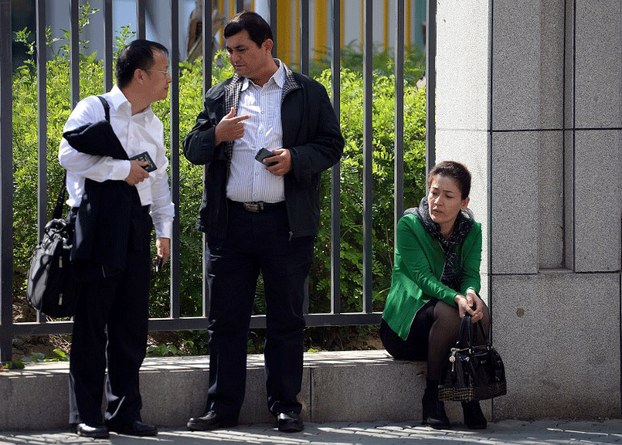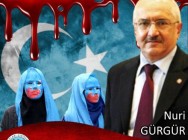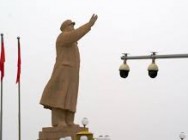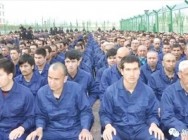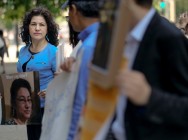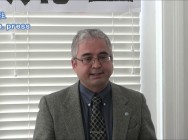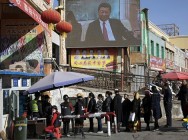Last Minute

- CHINA RELATIONSEAST TURKESTAN PROBLEM AND TURKEY
- FRONTLINE China Undercover
- Elimination of “Uyghur Counter-Revolutionary Officials” in Academic Fields—Exact Quotes Translated from a Mandarin Audio File
- In Push for Trade Deal, Trump Administration Shelves Sanctions Over China’s Crackdown on Uighurs
- Dalai Lama’s 60th Anniversary Symposium: İlshat Hassan speech in English and Chinese
- Uyghur Detainees from Xinjiang ‘Placed in Nearly Every Prison’ in Shandong Province
- Shahrezad Ghayrat, Unrepresented Women
- Uighur Americans Speak Against China’s Internment Camps. Their Relatives Disappear.
- Rozinisa: The true story of the Uyghur girls in the prison
- The Chinese Government Must Account for the Disappearance of the 10+ Million Uyghurs

-

CHINA RELATIONSEAST TURKESTAN PROBLEM AND TURKEY
-

FRONTLINE China Undercover
-

Elimination of “Uyghur Counter-Revolutionary Officials” in Academic Fields—Exact Quotes Translated from a Mandarin Audio File
-

In Push for Trade Deal, Trump Administration Shelves Sanctions Over China’s Crackdown on Uighurs
-

Dalai Lama’s 60th Anniversary Symposium: İlshat Hassan speech in English and Chinese
-

Uyghur Detainees from Xinjiang ‘Placed in Nearly Every Prison’ in Shandong Province
Uyghur Scholar Appears in Court at ‘Political Show Trial’
Outspoken Uyghur scholar Ilham Tohti denied charges of separatism brought against him at the first day of his trial in the troubled northwestern region of Xinjiang on Wednesday, as human rights groups slammed the hearing as a “politicized show trial.”
The former Beijing-based Central University for Nationalities economics professor stood trial amid heavy security at the Intermediate People’s Court in Xinjiang’s regional capital, Urumqi, his lawyer and supporters said.
“When the state prosecutor and attorneys asked Tohti how he pleaded to the charges, he said he believed they weren’t supported by the facts,” defense lawyer Liu Xiaoyuan told RFA on Wednesday after the trial, which lasted for some eight hours.
“He said he had never organized a splittist group, nor did he carry out any illegal activities,” he said.
The streets outside the court buildings were cordoned off and surrounded by files of riot police, Liu said, adding that Tohti’s wife Guzelnur and three of his brothers had been present in the gallery.
“I saw a lot of foreigners in front of the court house, probably embassy officials and journalists,” Guzelnur told RFA..
“I was sitting in the third row,” she said. “The court opened at 10:30 a.m. and two police officers escorted Ilham into the court.”
“He was wearing regular clothes, he seemed very relaxed and he wasn’t handcuffed,” Guzelnur said.
Eight foreign diplomats, including those from the U.S., the U.K., the E.U., Canada, Australia and France, who turned up at the court building were denied entry to the trial, according to Beijing-based rights activist Hu Jia.
Foreign diplomats
“I was told by diplomats that representatives of eight different countries traveled [to Urumqi],” said Hu, who also tweeted on Wednesday that he was being hauled in for questioning by state security police in Beijing.
“Some of the countries who are concerned about this case are the U.S., the E.U., the U.K., France, Germany and Switzerland, as well as Australia,” Hu said.
The trial adjourned after around eight hours in session, including a break for lunch, Liu said.
“I haven’t started [making the argument for the defense] yet,” Liu said. “We are still hearing the case for the prosecution.”
Tohti’s 20-year-old daughter Jewher Ilham, who has lived in the United States since being forcefully separated from her father at Beijing International Airport in 2013, said she was “proud” of her father.
“A while ago I talked to Guzelnur,” she said. “I was told that he is going to defend himself.”
“My father only demanded legal rights for Uyghurs,” she added.
“He didn’t do anything wrong. He only spoke the truth. I am proud of him,” Jewher said.
Unfair
Meanwhile, human rights and exile groups hit out at Tohti’s trial as highly politicized and unfair.
The prosecution of Tohti “is a disturbing example of politicized show trials and intolerance for peaceful criticism,” New York-based Human Rights Watch (HRW) said in a statement on its website.
“The trial only serves to deepen perceptions of discrimination against Uyghurs,” it said.
Dilxat Raxit, Munich-based spokesman for the World Uyghur Congress (WUC) exile group, said a fair hearing is extremely unlikely for Tohti.
“They have already made their politicized judgement in bringing these charges against Ilham Tohti in the first place,” Raxit said.
“Of course they won’t honor his right to a fair trial.”
He said the WUC had hoped that the presence of a number of foreign diplomats at the trial would step up the pressure on Beijing, however.
HRW China director Sophie Richardson said Tohti has consistently advocated for greater communication and dialogue between the mostly Muslim ethnic Uyghur group, which chafes under Beijing’s rule, and the majority Han Chinese.
“If this is Beijing’s definition of ‘separatist’ activities, it’s hard to see tensions in Xinjiang and between the communities decreasing,” Richardson said.
Intimidate
And Dominic Moran, director of free expression programs at PEN American Center, said Beijing’s treatment of outspoken writers like Tohti, who ran the UighurOnline website at uighurbiz.net, was an attempt to intimidate others.
“This trial is an utter farce,” Moran said in a statement e-mailed to RFA on Wednesday. “Beijing is making an example of Tohti to deliver a message to all who dare to criticize the state to keep their mouths shut.”
“But for Ilham Tohti and his family, this flexing of muscle translates into years of unwarranted separation, prison abuse, government harassment, and isolation from their community,” he said.
Courts in China are heavily controlled by the ruling Chinese Communist Party, and the country has a near-100 percent conviction rate.
If found guilty, Tohti could face a maximum sentence of life imprisonment, given that the charges against him don’t include the most serious form of “separatism,” which can result in the death penalty.
Human rights groups have said that Beijing wanted to punish Tohti, a long-time advocate of Uyghur rights and outspoken critic of Chinese policies in the Xinjiang region, as part of a long-term strategy of suppressing Uyghur voices.
The Xinjiang region, which is home to millions of Turkic-speaking Uyghurs, has seen an upsurge in violence that has left hundreds dead since 2012, and which China has blamed on terrorists and Islamist insurgents seeking to establish an independent state.
But rights groups accuse the Chinese authorities of heavy-handed rule in Xinjiang, including violent police raids on Uyghur households, restrictions on Islamic practices, and curbs on the culture and language of the Uyghur people.
Chinese president Xi Jinping announced a harsh, one-year antiterrorist campaign in May, following a bombing in the regional capital Urumqi that killed 31 people and injured 90.
Reported by Mihray Abdilim for RFA’s Uyghur Service, by Hai Nan for the Cantonese Service, and by Qiao Long for the Mandarin Service. Translated by Mamatjan Juma and Luisetta Mudie. Written in English by Luisetta Mudie.
http://www.rfa.org/english/news/uyghur/tohti-09172014134053.html
RELATED NEWS






